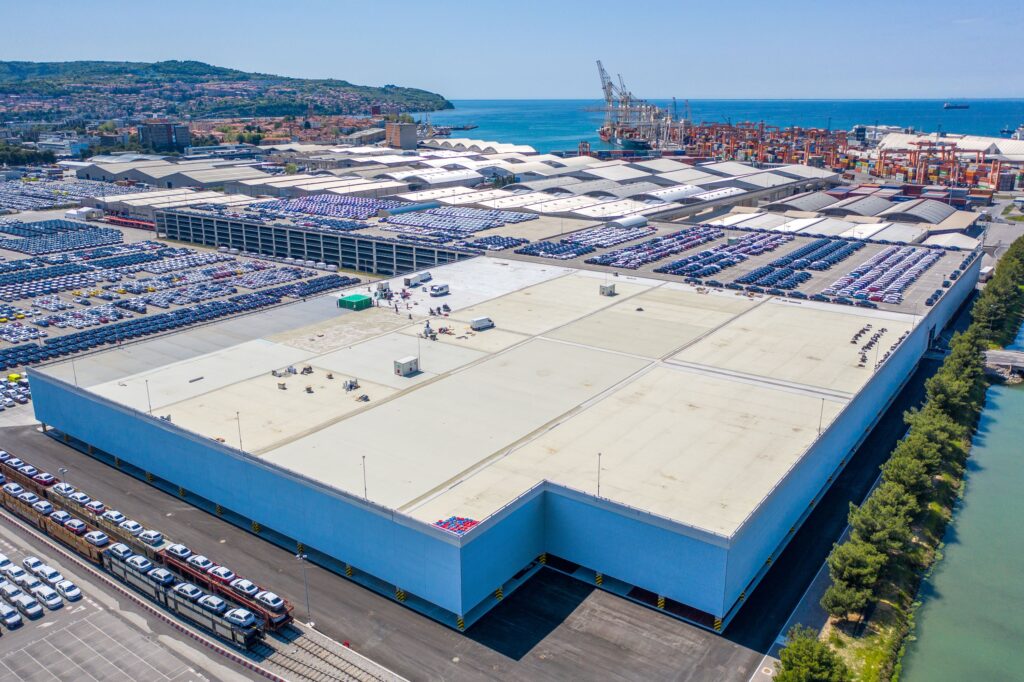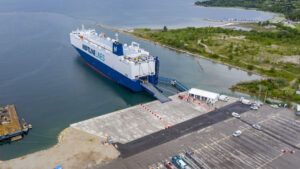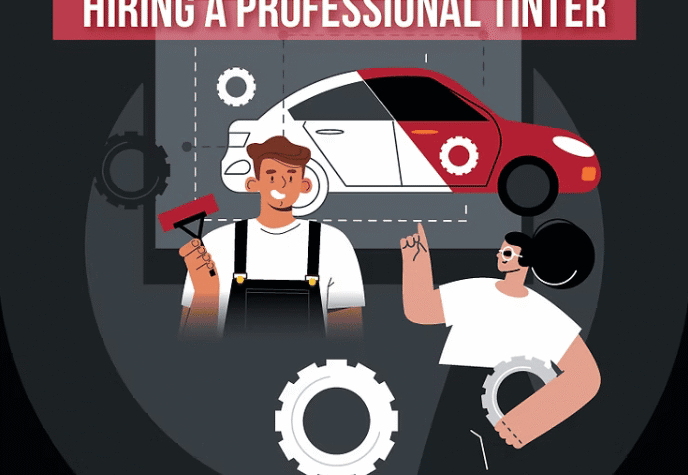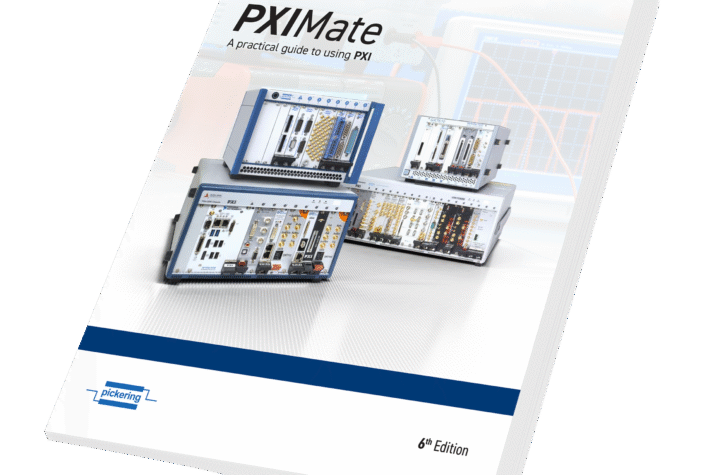
Investment into the multi-purpose port of Koper has continued through the disruptions caused by the measures put in place to slow down the spread of the Covid-19 virus.
Luka Koper, the operator of the port, invested almost 70 million Euros (US$86 million) in new infrastructure and equipment during 2020. A great part of these investments was focused at the automotive segment Luka Koper finished some of the projects in 2021. The Slovenian port is situated on the Adriatic Sea and connects OEMs based in Central and South-East Europe with the Mediterranean Sea and Far East.

Luka Koper operates the terminals and manages the harbour area and free trade zone which incorporates the port. In 2020 the company completed two major investments: A new dedicated Ro-Ro berth was opened, and a new railway access was built in the north-east side of the port. According to Luka Koper, these investments have “significantly shortened internal transportation routes while increasing productivity and safety”.
In May 2021 a new garage with 6,000 parking lots was inaugurated. This will meet increasing demand of customers for covered storage areas, while improving the internal logistics of car transshipments, according to the company. The terminal also has 33,000 open storage units for vehicles.
Services include waxing and dewaxing, PDI zero repair service, and mechanical, painting and body repair services within the free trade zone.
Luka Koper’s Car and Ro-Ro terminal is ranked fifth among European ports in terms of handled vehicles in 2020. A total of 617,157 units were imported and exported, making Koper the busiest car terminal in the Mediterranean. Further investment in the port is planned in order to meet the storage and improved productivity needs of the vehicle owners and shipping lines, according to the operators. Automotive Industries (AI) asked Gregor Belič, Car Terminal Manager, Port of Koper, how the terminal managed the impact of the 2020 Covid-19 pandemic.
Belič: We coped well with pandemic consequences, both from the health and business points of view. The port of Koper, which is recognized as strategic infrastructure, operated smoothly throughout, and provided the services required by customers. The throughput of our two strategic product groups, containers and cars, remained largely stable. The container throughput was only one percent behind that of 2019. On the automotive side there was a 13% drop in throughput year on-year, which was a much smaller decrease than that in comparable Mediterranean ports.
AI: What measures did your company put in place in order for the port to continue operations safely as far as the virus goes?
Belič: The company has taken a number of additional measures, which include adjusting work schedules and processes to reduce direct contact between employees; organizing work with a focus on remote access and remote meetings; and strengthening self-protection and hygiene measures. The company communicates all the measures it has adopted and activities promptly to internal and external public, business partners and all stakeholders concerned.
AI: How was Luka Koper’s business impacted by Covid-19?
Belič: Among the European automotive ports, Luka Koper recorded the lowest drop in car throughput. As we expect an economic recovery in 2021 – at least on some markets – car sales are also predicted to rise in 2021. This year we expect an 8 % increase in car volumes through our terminal compared to 2020. As regards port business, the Covid pandemic has caused problems particularly related to volatility of shipments and consequent organizational efforts to adapt to this unstable situation. In the Port of Koper all terminals are managed by a single company, so there is a cooperation and coordination between the terminals to maximize the availability of the working personnel and in this respect to better cope with the volatility.
AI: What is the progress on the investments being made in the port?
Belič: Several important investments started or were completed in 2020 at our car and Ro-Ro terminal. In May we finished the construction of additional railway sidings (4x 700 meters), specifically designed for vehicle loading/ unloading. Not far from these railway sidings a new dedicated Ro-Ro berth was completed in June. Both investments, together with the adjacent storage areas, provide higher productivity with shorter intra-port transport routes and increase overall terminal capacity. This year we finished the construction of a new garage for 6.000 units – it became operational in May 2021. There were also investments related to power supply infrastructure in order to support the increasing volumes of electric vehicles. We continued with the introduction of modern lighting systems for storage areas, which bring energy efficiency and enable smarter light management.













More Stories
Professional vs. DIY Tinting: What You Should Know
New updated edition of “PXIMate” reference guide for T&M engineers available from Pickering Interfaces
5 Mistakes That Can Ruin Your Car Accident Claim